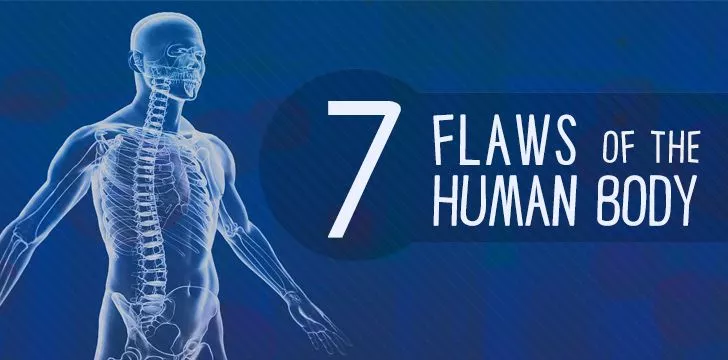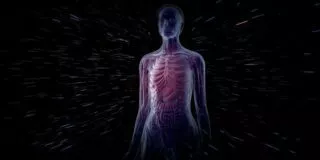Don’t get me wrong, the human body is amazing. Endlessly, staggeringly, wonderfully amazing.
I’ve studied it for many years and it never ceases to keep on astounding me with its intricate systems, perfectly adapted organs and genius functional design.
Or… maybe not so genius.
Here’s the deal – evolution favors functionality, not perfection. Read on for seven times this couldn’t be more evident.
Our “useful” spines.
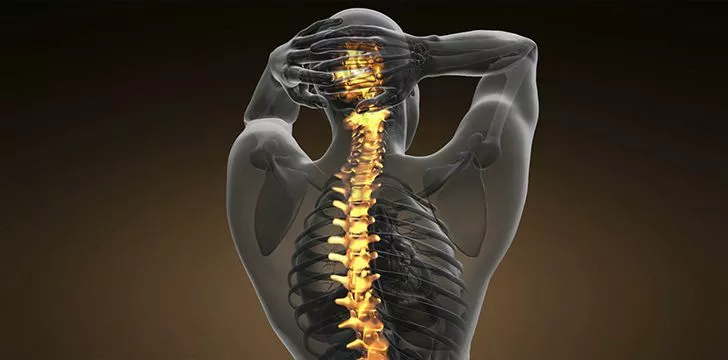
Throw back to a few million years ago; our ancient ancestors were getting about on all fours with a magnificent bow-shaped spine perfectly shaped and strong enough to support all the precious organs being cradled underneath.
Then fast forward to when then-humans made the big switch to a bi-pedal life.
Scientists have theorized that this was great for a number of reasons, including freeing up our hands to allow us to use tools, putting our eyes in a more elevated position and to reduce the amount of skin exposed to the unrelenting tropical sun.
But not so much for that super essential part of our skeleton.
In becoming upright, the spine had to bend in an s-shape to allow for movement while simultaneously balancing the weighty cranium, causing pressure where there previously was none… and future generations to complain about back ache.
Knackered Knees & Hips.

Apart from the pressure on our spines, becoming bipedal also meant instead of being spread through four limbs, our entire body weight was now being shared by just our legs.
That is, our knees, hips and ankles. They’re just not built for taking our full weight.
Childbirth.

This one is probably the first thing that springs to mind when discussing the human body being less than ideal in design.
I can’t talk from personal experience, but I’ve heard giving birth can be pretty uncomfortable.
And the fact we have tiny narrow pelvises is not helping our plight for a less painful experience, nor is the fact we’re baring offspring with bigger brains and therefore bigger skulls.
But hey, that’s natural selection baby!
Wisdom Teeth.
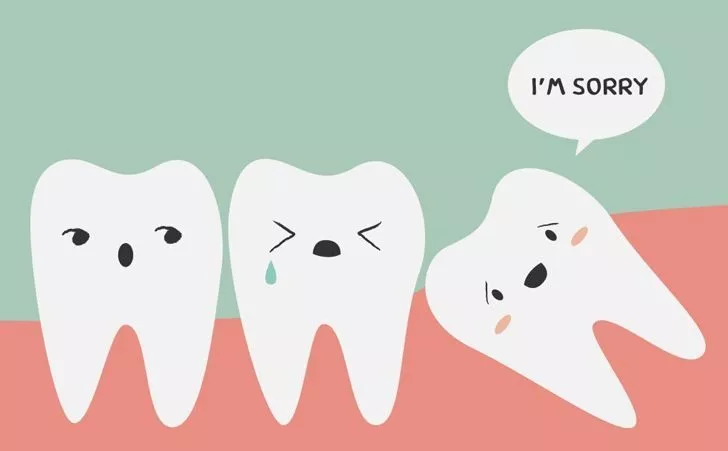
Back in the days where our diet consisted of chewy fibrous plants, having three sets of molars was the dream.
However, our modern day diet consisting of more soft processed foods means two sets will do us just fine.
Turns out those last sets of molars didn’t get the memo and still like to make an appearance in adolescence.
Since our brains became bigger, our jaws became smaller to make space.
For a lot of us, the only place for these teeth who still insist on turning up to the jaw party is to impact into the gums, often requiring a painful extraction, a lot of ibuprofen and a few weeks of eating nothing but soup and ice cream.
A Multi-tasking Throat.
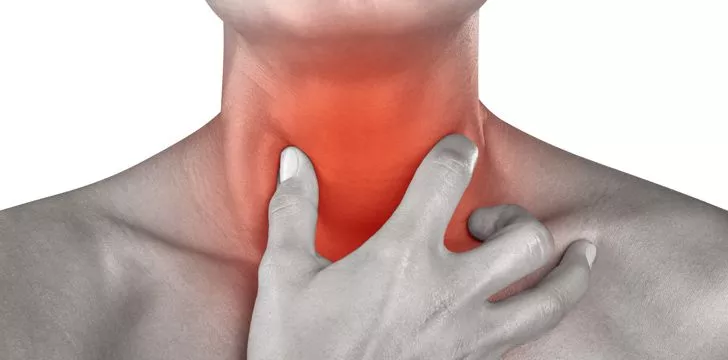
Choking is one of the most common causes of death, so you’d think we’d stop putting things in our mouths just asking to get caught in our windpipes right?
Oh yeah, because if we didn’t, we’d starve.
One unintuitive design feature is that our throats are involved in both digestion and respiration, and also house our voice boxes for good measure.
There are alternatives in the animal kingdom, for example the sea cucumber, which feeds through its anus, but I can’t imagine most humans would find that a more favorable option!
Pitiful Eyelids.
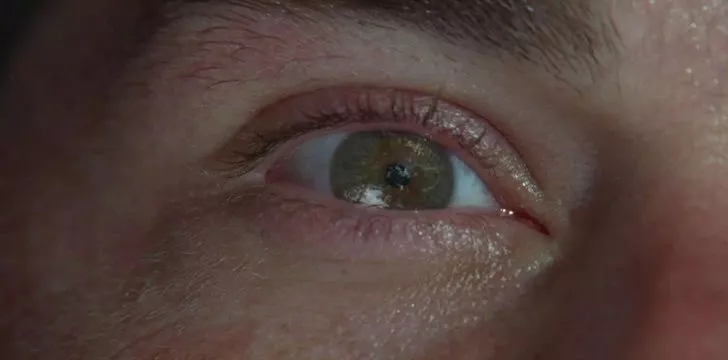
The role of our eyelashes is to capture dust and liquid and any other tiny particles that may irritate or damage our eyeballs.
Great, except have you noticed how easily eyelashes fall out and irritate the exact thing they’re there to protect? What is that about body?
Although it wouldn’t be so bad if we didn’t have such wimpy eyelids – many animals have two sets, some even three!
These are a thicker sheath of skin to block out light, and another thinner membrane to clear particles and keep your eyes clean.
The third, known as the “nicitating membrane”, is used to keep the eye moist whilst maintaining vision.
Rubbish Thermoregulators.

Maintaining a constant body temperature is critical for life. Internal temperatures must be kept at 99°F (37°C) as this is the temperature at which the chemical reactions in our body need to happen.
Throughout the mammal world, there are a lot of brilliant adaptations that allow this to happen, the massive ears of the desert fox to facilitate rapid cooling and the hollow fur of the polar bear to trap warm insulating air.
What do we have as humans? Sweat glands – and a lot of them.
So many in fact, they actually make us the least efficient temperature regulator in the animal kingdom.
So there we have it, seven flaws of the human body, from head to toe, through our innermost systems, you can really see how the body isn’t as perfect as it could be.
If you can think of any other examples (and there are many more!) leave them in the comments below!
